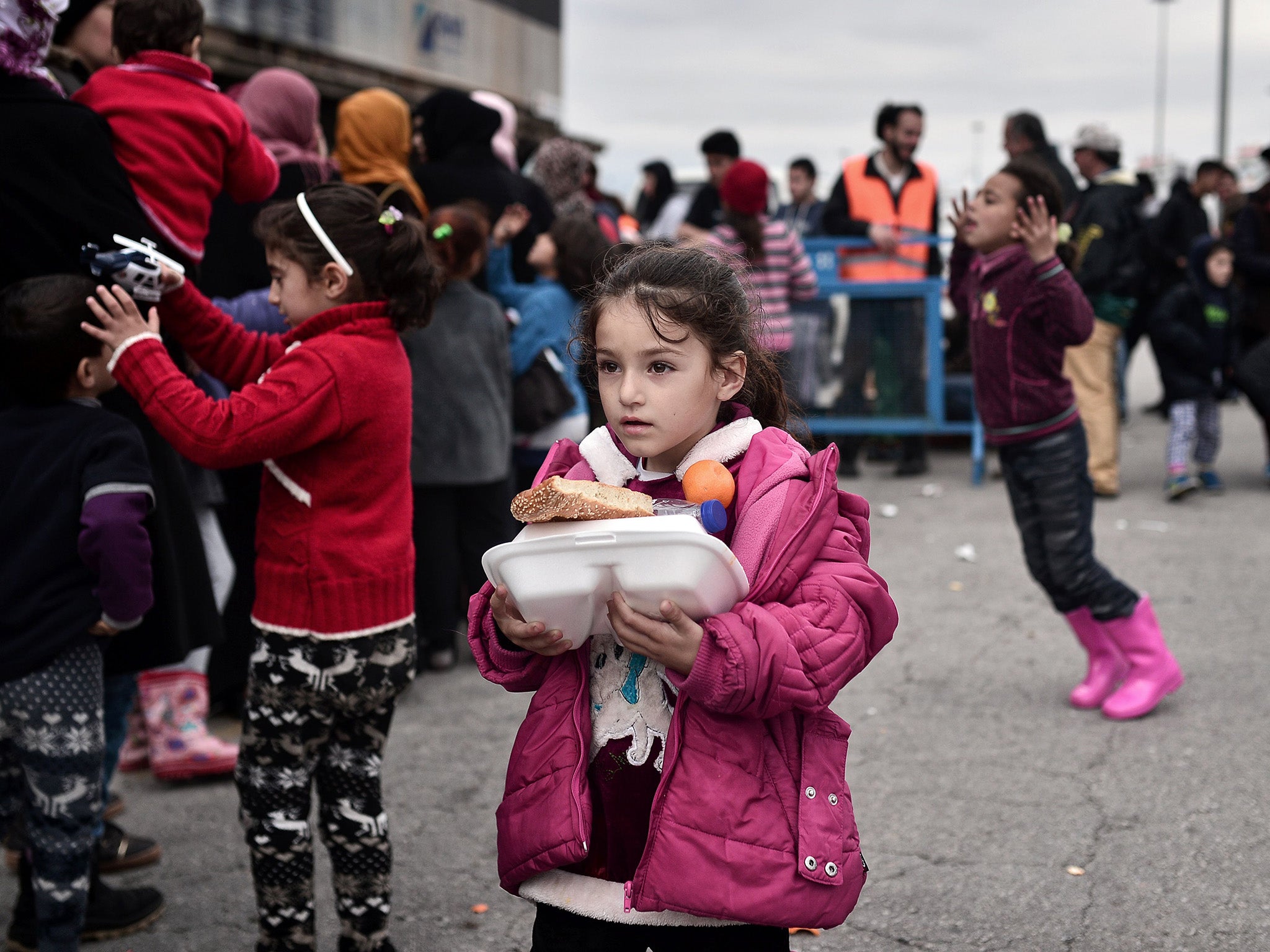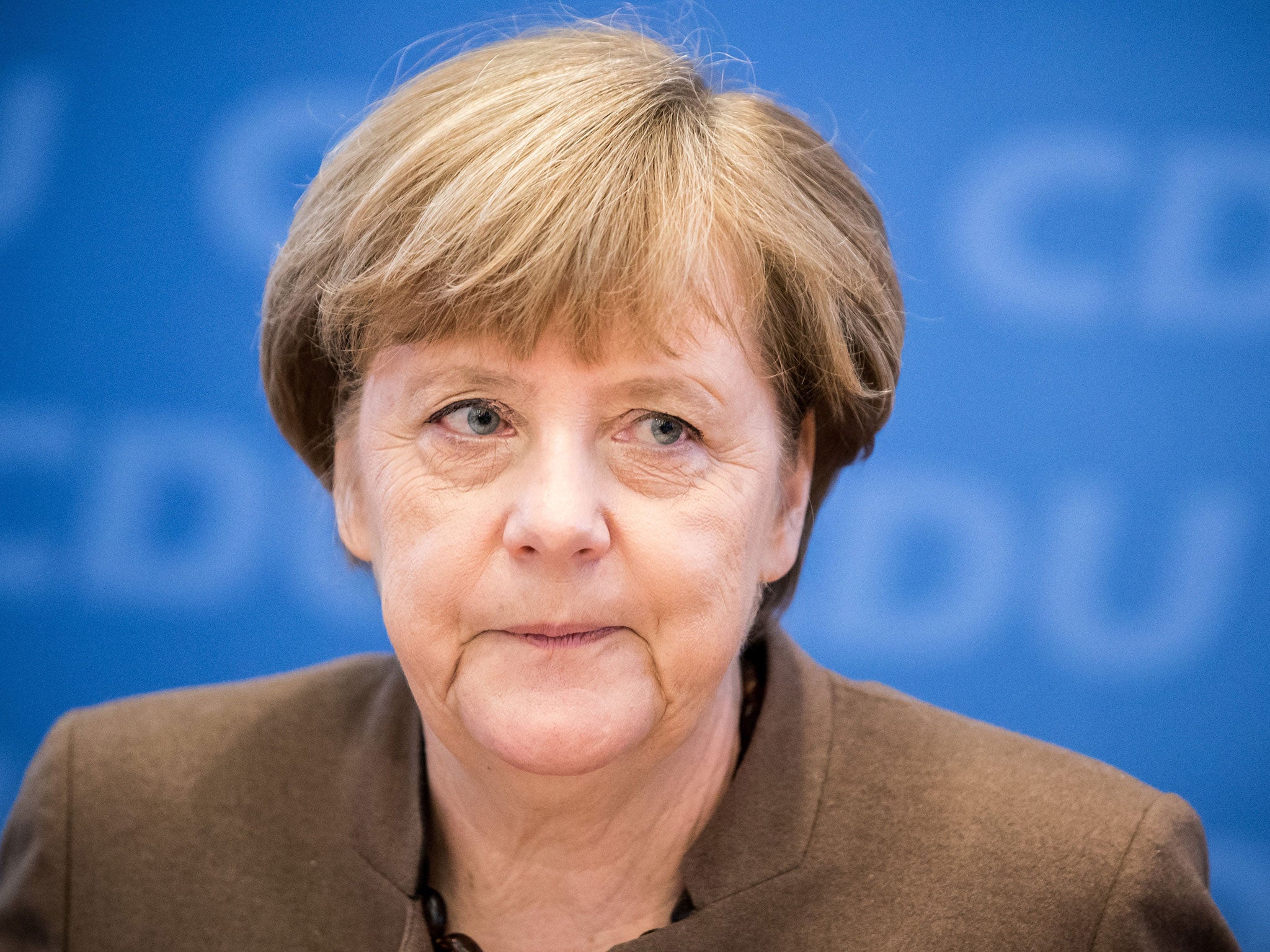Refugee crisis: Migrants arriving on Greek islands to be sent back within days if Turkey deal goes through
Angela Merkel says deal 'gives the EU a chance to get a sustainable, pan-European solution to the refugee issue'

Refugees landing on Greek islands will be deported within days under a "decisive" draft deal with Turkey.
The German Chancellor, Angela Merkel, said the deal “gives [the EU] a chance to get a sustainable, pan-European solution to the refugee issue".
She was speaking on the eve of a summit to sign the deal which will fast rack Turkey’s application to join the EU in exchange for readmitting refugees who have already crossed the Aegean Sea to Greece.
Ms Merkel, who drafted the deal with other EU leaders, said: "What is at stake tomorrow and the day after tomorrow is whether we can get a deal that, for the first time, gives us a chance to get a sustainable, pan-European solution to the refugee issue".
She warned other leaders not to be "deceived" by the current drop-off in the numbers of people arriving in Germany caused by Austria shutting its borders.
She said: "The current easing that Germany and some other member states is experiencing is one thing. The situation in Greece is the other and it must be a big concern to us all because it is not without consequences for us all in Europe".

The border closures across the continent have created a bottleneck in financially strapped Greece which local officials say is untenable.
What does the deal mean?
The deal will mean Turkey will exchange refugees who cross the Aegean Sea with asylum seekers living in their camps on a one-to-one basis to encourage asylum seekers to use legal challenges.
They will also receive €6bn (£4.7bn) in aid and visa-free travel for their citizens from June.
Reception centres on the holiday islands of Lesbos, Chios and Leros will be turned into detention camps and all refugees will undergo face-to-face interviews with EU asylum officials before having any appeals decided upon before Greek judges in fast-tracked hearings.
Why is it so controversial?
Turkey is not a signatory of the Geneva convention on refugee rights and currently deports some asylum seekers from Iraq and Afghanistan to war zones - which is forbidden under EU law.
The deal has been watered down - with the interview process in Greece being included after the UN Refugee Agency (UNHCR) said mass deportation was a violation of international law - and the EU will only start deporting refugees if Greek judges agree conditions and legal processes in Turkey are up to same standard as theirs.
Many EU leaders are uncomfortable about making a deal to remove restrictions on Turkish citizens’ travel and the increasingly authoritarian rule of President Recep Tayyip Erdogan.
Over the past few weeks the government took over one of the country’s most popular newspapers, Zaman, and has carried out an ongoing military crackdown on Kurdish militants.
There is also “the unresolved question” of Cyprus - an EU member state which wants Turkey to recognise its sovereignty over the island and withdraw from the north of the country which it invaded in 1974 and declared as an independent state in 1983.
Additional reporting by Reuters
Join our commenting forum
Join thought-provoking conversations, follow other Independent readers and see their replies
Comments
Bookmark popover
Removed from bookmarks